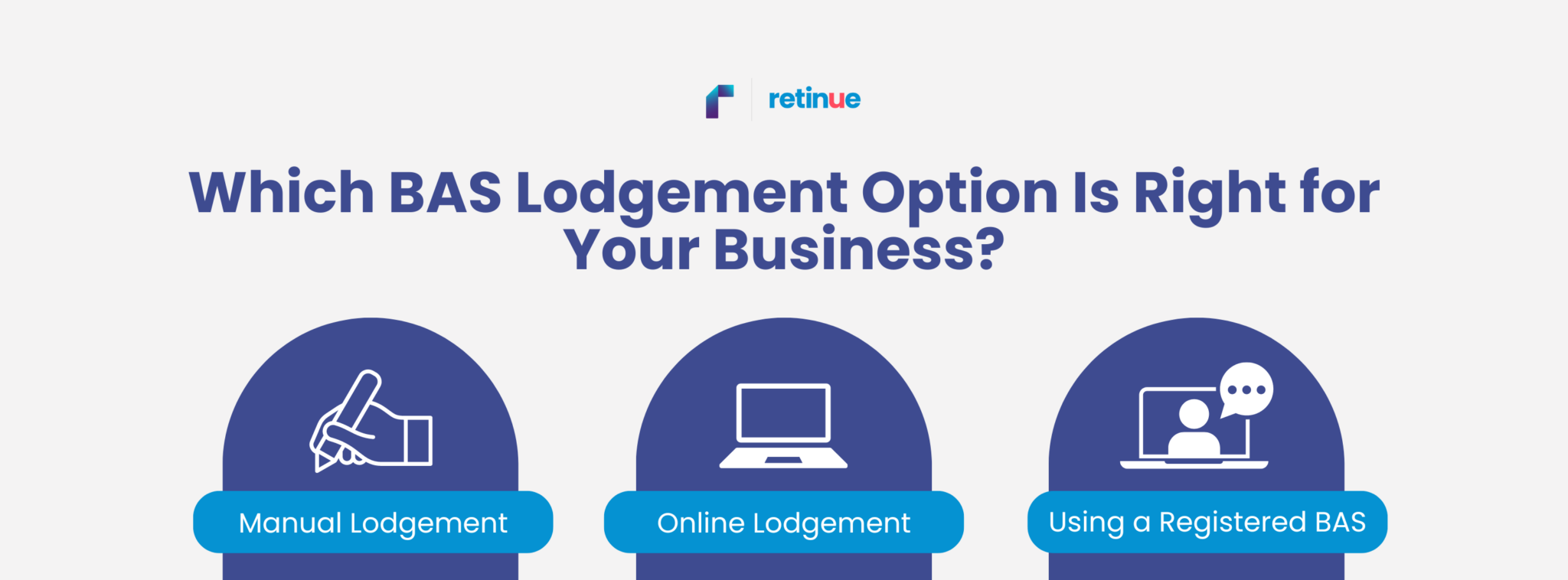
01 October 2024
Lodging your BAS is a huge part of a business’s tax obligations. This includes reporting on GST, PAYG withholding, and other taxes. There are several options to lodge BAS. Which one is right for your business?
Let’s explore the various BAS lodgement options—along with the pros and cons of each—to help you make an informed decision.

Manual Lodgement
Manual lodgement involves filling out a physical BAS form and mailing it to the Australian Taxation Office (ATO). This option might seem straightforward, but it’s often the least preferred for several reasons.
Pros:
Cons:
When to Use Manual Lodgement: This option might be suitable for small businesses or sole traders who are comfortable with paperwork and have minimal transactions. However, the drawbacks often outweigh the benefits, particularly if you have a high volume of transactions or complex tax obligations.
Online Lodgement
Online lodgement is the most popular option among businesses of all sizes. It involves submitting your BAS electronically through several online platforms: the ATO’s online business portal, the myGov platform for sole traders, or SBR-enabled software integrated with your accounting system.
Pros:
Cons:
When to Use Online Lodgement: Online lodgement is ideal for most businesses, particularly those with moderate to high transaction volumes. It’s a good option if you’re comfortable using digital platforms. Plus, it’s a faster, more efficient process.
Using a Registered BAS Agent
A registered BAS agent is a professional who specialises in preparing and lodging BAS on behalf of businesses. This option offers a more hands-off approach, eliminating the stress of paperwork and deadlines.
Pros:
Cons:
When to Use a BAS Agent: Using a BAS agent is especially beneficial for businesses with complex tax obligations or those that lack in-house expertise. It is a wise investment if your business needs specialised support to manage your tax affairs.
Which BAS Lodgement Option Is Right for Your Business?
Choosing the right BAS lodgement option depends on several factors, including the size of your business, the complexity of your tax obligations, your familiarity with digital tools, and your budget.
No matter which lodgement option you choose, ensuring your BAS is lodged accurately and on time is crucial to avoid penalties and remain compliant.
Ready to simplify your BAS lodgement? We can help – call us on 1800 861 566. Our team at Retinue is here to help you navigate the complexities of BAS.
*Retinue’s (ABN 66 658 618 449) payroll service includes the processing of hours and wages rates provided by you. We do not determine award rates for your employees or provide advice on the correct employment status of your employees. It is your responsibility to ensure that your employees are paid correctly and we recommend obtaining advice from specialised employment relations experts.
Protection is only provided for ATO investigations notified to us during the period which you are a client and relating to any tax returns or lodgements prepared by us. Fines includes any penalties and interest that may result from any errors made by us but does not include any additional tax liability that may result from an amended lodgement.
Liability limited by a scheme approved under Professional Standards Legislation.
©2024 Retinue. All rights.